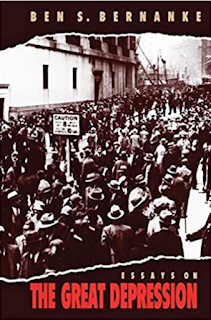"There can be no peace among nations without peace among religions." Hans Küng
An edited version of this post was published in
the June 16 edition of the Anabaptist World.
What if we were to paraphrase Küng's words to ask, "How can we spread a gospel of peace without demonstrating shalom-like peace among ourselves?"
While nice folks like us may not be openly un-peaceful or hostile, we are all too prone to give up on each other and go our separate ways. In that sense we (peacefully?) "ex-communicate" one another, not by formally expelling congregations or groups of congregations with whom we disagree, but by simply withdrawing from them, no longer "communicating" with them when it comes to maintaining regular fellowship or communion together.
Our Amish cousins are at least consistent in their practice of this form of excommunication, in that they declare those judged to be out of order as deserving the ban, writing them off as no longer being fellow members of the body of Christ.
I once asked a member of a congregation that had left our Virginia Mennonite Conference if those of us who stayed would still be welcome to join them at their communion services.
"Of course!" he assured me, "We will always welcome you to the Lord's Table."
"What?" I asked. "So you're not OK with worshipping and working with us in our conference assemblies, but you would welcome us to be one with you in the most intimate and sacred part of your church life?"
To me it felt like a divorcing couple announcing that while they could no longer tolerate living in the same household they would still be OK with occasionally being in bed together.
Here is the kind of Christ-based, covenant-bound church unity I keep praying for:
- That we celebrate a God-given “unity of the Spirit” while continually working, for as long as it takes, at gaining an ever greater “unity of the faith.”
- That having largely abandoned the practice of excommunicating individual church members, that we commit to no longer “excommunicating” whole groups of congregations with whom we differ.
- That where past church separations have occurred, that we keep the door open and the invitation out to becoming reunited and to reconciled wherever possible.
- That our congregations, district conferences and MCUSA would be bound together not so much by our constitutions and bylaws, as in a Gesellschaft (an organization) but as sisters and brothers in God's beloved Gemeinschaft (a community).
- That if necessary we would be willing to review our organizational structures, constitutions and confessions, say every Jubilee (50th) year, and wait prayerfully and expectantly for Pentecost-style rebirths, ernestly seeking new wine and welcoming new wineskins.
- That we would not allow current issues we define as "elephants in the room”—like a loss of trust in church structures or policies, or disagreements about how to fully include members who identify as LBGT+—from distracting us from the multitude of threats we seem inclined to see as mere "mice in the room," such as:
...the ever increasing hold of Mammon, money, and material wealth that is threatening to choke the spiritual life out of our communities of faith. Our families, congregations and church institutions are claiming the right to ever more privilege, status, state of the art accommodations and lifestyles that are creating ever widening gaps between us and a world experiencing unprecedented hunger and homelessness.
...an increase in the hold that readily available media are having on our daily lives, with our children, teens, young adults and members of all ages being exposed to an unbelievable barrage of pornography, propaganda, deceptive and seductive advertisements and other distractions from a life of faithfully following Jesus.
...an astonishing lack of concern on the part of the heterosexual as well as the non-heterosexual community over a kind of sexual permissiveness that has elevated eros over agape, short term pleasure over lasting covenant-based commitments, and promiscuity over fidelity.
...a plague of violence and carnage in our nation, fed by an increased level of hurtful and divisive rhetoric that is dividing our communities and our congregations, amplifying our fears and our animosity toward named “enemies," and feeding the flames of an unprecedented military madness hellbent toward worldwide holocaust.
...an overconsumption of natural resources and fossil fuels that contribute to climate change and which threaten the very survival of our children and grandchildren, all of whom will be dealing with increased famines, wildfires, floods and ever more extreme weather events.
These troublesome and rapidly multiplying rodents are the ones our youth and young adults are typically seeing as the real “elephants in the room.”
Kyrie Elision,
Lord have mercy.






